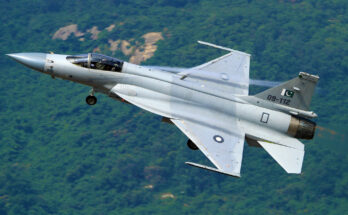After years of investment and testing and planning for the procurement of unmanned aerial surveillance platforms for use in the signals intelligence (SIGINT) mission, and unending controversy, Germany is scrapping legacy plans and moving forward with a manned solution instead.
Ultimately the decision was based on two factors that have long held up the German PEGASUS (Persistent German Airborne Surveillance System) project: cost and, more importantly, eligibility for certification from the European Aviation Safety Agency (EASA) enabling ease of flight over German and European airspace. The latter requirement appeared unlikely to be achieved by the targeted date of 2025, prompting the German decision to shift from pursuing an unmanned to a manned platform.
"Letting #drones fly in the same airspace as civilian traffic remains an unresolved problem, as the requisite sensing technology and the regulatory framework are still emerging."https://t.co/CWE2RWJt9v
— Ulrike E. Franke (@RikeFranke) January 28, 2020
Enabling its drones to share airspace with civilian traffic has lingered as an issue since Germany’s first attempt to plug a SIGINT capability gap through its failed EuroHawk program. The German EuroHawk was a version of Northrop Grumman’s Global Hawk high-altitude long-endurance (HALE) UAV, fitted with an upgraded sensor package from Airbus Defence and Space.
In May 2013, the German government opted to cancel a planned acquisition of five RQ-4E EuroHawks due to cost concerns related to the certification process allowing flight over European airspace.
The decision to cancel the EuroHawk drone program came after Germany had invested EUR508 million on a single prototype (delivered to the Luftwaffe on October 12, 2011 – more than a year late) and EUR668 million ($730+ million) overall on the program, not including EUR40 million spent on modernizing its air base at Jagel in order to operate the future UAV fleet there.
Less than two years after canceling EuroHawk, however, Germany sought to resurrect the capability acquisition.
Because of the costs sunk on the EuroHawk project and the need to fill a gap in the Luftwaffe’s signals intelligence capability, Defense Minister Ursula von der Leyen called for completion of testing of the EuroHawk’s integrated SIGINT system. The intention was not to continue EuroHawk, but to instead harness the SIGINT payload to an alternative platform.
That platform was to be the MQ-4C Triton from Northrop Grumman, which would be procured under the Pegasus acquisition program. Germany’s government-to-government Foreign Military Sales (FMS) request to purchase four Tritons was cleared by the U.S. State Department in April 2018. That request came with an estimated price tag of $2.5 billion for the four Triton systems and mission control station, plus accompanying parts, logistical support, and infrastructure elements.
Contract negotiations were expected to wrap up in 2019, with the first drone entering Bundeswehr service by the 2025 target.
But now after realizing the timeline had become increasingly untenable, Germany is moving forward in another direction, opting instead for a purchase of three Bombardier Global 6000 manned aircraft equipped with eavesdropping sensors from Hensoldt called “ISIS-ZB.”

Dan Darling is Forecast International’s director of military and defense markets. In this role, Dan oversees a team of analysts tasked with covering everything from budgeting to weapons systems to defense electronics and military aerospace. Additionally, for over 17 years Dan has, at various times, authored the International Military Markets reports for Europe, Eurasia, the Middle East and the Asia-Pacific region.
Dan's work has been cited in Defense News, Real Clear Defense, Asian Military Review, Al Jazeera, and Financial Express, among others, and he has also contributed commentary to The Diplomat, The National Interest and World Politics Review. He has been quoted in Arabian Business, the Financial Times, Flight International, The New York Times, Bloomberg and National Defense Magazine.
In addition, Dan has made guest appearances on the online radio show Midrats and on The Media Line, as well as The Red Line Podcast, plus media appearances on France 24 and World Is One News (WION).




